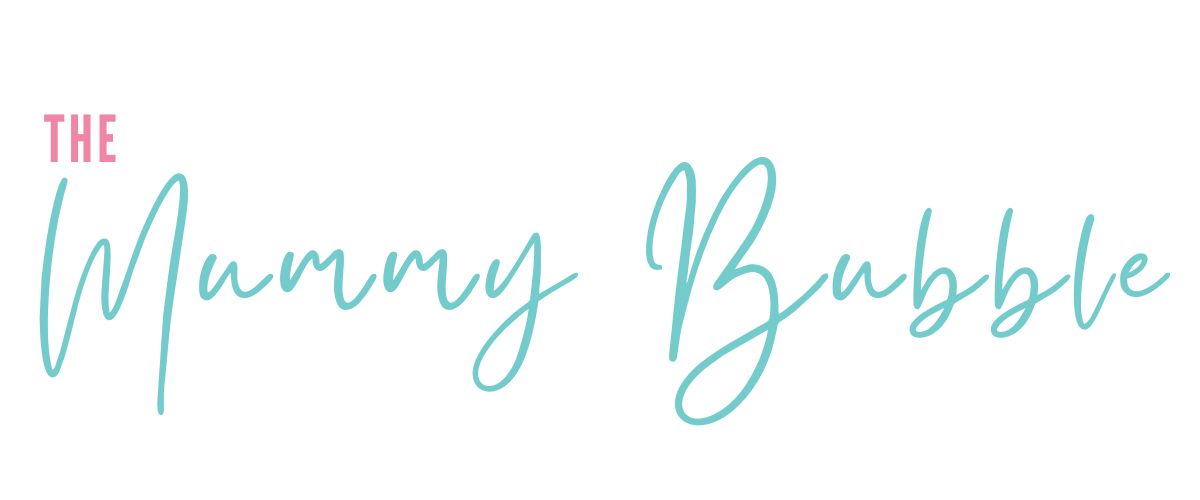Looking for a routine for your 18-month-old that actually works?
Your energetic toddler will thrive best when on a daily routine.
It’s the simplest way to ensure they get the sleep they need – with little resistance – and are happy during their waking hours.

The great thing having a toddler is the changes to their routine are nowhere near as rapid as with a newborn baby.
With a newborn their daily routine can change quickly week-by-week as they ditch naps and experience sleep regressions.
While toddlers go through changes after age one, and we will talk about those later, their routine tends to hold pretty steady once they ditch their morning nap and move to just having one afternoon nap.
I know that this toddler routine works, because my own two children followed this exact routine.
As babies they were a little different with their behaviour. One slept amazingly well at night while the other woke up frequently in the first year.
But once they hit age one, both moved to this exact routine once they were down to just one nap per day.
I absolutely love this routine, because with only the one nap time to cater for, it leaves you free to get out and about for good chunks of time in the morning and afternoon. Let’s not forget as well that you won’t be having to feed them as frequently as when they were a baby.
At 18 months your toddler will be on three meals a day plus having one or two snacks. If your toddler is still breastfeeding, this may just be on an as-and-when basis or just in the mornings or evenings.
My point is, everything feels a little easier when you don’t have to tote a bag of formula around or stop to nurse your little one for 15 minutes every couple of hours.
Some people see the word routine and think it’s going to restrict what they can do every day. That’s definitely not the case, especially not with this one which leaves you big chunks of time in the day to choose what you do.
Setting a routine for your toddler is a great idea and there are many benefits.
These include better sleep, a happier child, a better diet with less snacking and more quality time with your little one.
So, what does a great routine for your 18-month-old look like? Let’s have a look.
Sample 18-month-old routine
This routine assumes your toddler wakes at 7am. If they wake earlier, then it’s likely lunchtime may remain at roughly the same time but they might be ready for the nap slightly earlier at 12.30pm.
| Time | What’s happening |
|---|---|
| 7am | Wake up |
| 7.30am | Breakfast |
| 8am | Free play at home / simple craft |
| 9am | Play or activity at home / outing |
| 11.30am-12midday | Lunch |
| 1pm | Nap |
| 3pm | Wake and free play / simple craft at home |
| 5pm | Dinner |
| 6pm | Wind down time – quiet play |
| 6.30pm | Bath |
| 6.45pm | Book and cup of milk |
| 7pm | Clean teeth and lights out for bed |
What changes in your toddler’s routine at 18 months?

So what’s different about your 18-month-old’s daily routine?
The biggest change at 18 months will be your toddler moves from two naps to one nap.
This may happen very gradually or all of a sudden. Most toddlers will give you some very clear cues that they’re gearing up to ditch their second nap
Other big changes may be that your toddler is now a lot more physically active.
They’ve always been curious about the world around them, but now they’re much steadier on their feet and have better height so they can reach for more stuff.
This may create challenges around the home, so do check out this post on toddler-proofing your home for lots of tips on making your house safe.
Their physical abilities changes what kind of activities you may do with them during playtime. Getting them out to the park or exploring your garden will be something they love to do.
There are also some brilliant pre-school activities you can do with them. There are tons of toddler craft ideas on this post and ideas for toddler activities here.
Does a one-year-old need formula?
Your one-year-old does not need to drink infant formula or follow-on milk, according to the NHS. They can continue to breastfeed if you choose or drink cows’ milk like the rest of the family.
Your one-year-old should have whole milk until they are age two to get the extra energy and vitamins it contains compared to skimmed or semi-skimmed milk.
At 18 months your toddler should be on three meals per day with a couple of healthy snacks such as fruit in between their meals.
Their milk schedule will look very different from when they were a baby, as by now they should have dropped daytime bottles or breastfeeds.
Your 18-month-old may still want a drink of milk in the mornings with breakfast and in the evening before bedtime (mine still like a bedtime drink of milk).
Try to offer your toddler water at meal times as it is much better for their teeth.

How much sleep does an 18-month-old need?
Your 18-month-old needs 11 to 14 hours sleep per day, divided between daytime and overnight sleep.
Their daytime sleep will typically total between 90 minutes and two hours.
At this age both of my little ones would sleep overnight for 11 to 12 hours (7pm to 7am).
How many naps does an 18-month-old need?
At 18 months your toddler will be down to one nap per day. This nap will most likely be after lunchtime, which is perfect because they are tired out from their morning activities but the nap isn’t too close to their bedtime.
The last thing you want is a danger nap! This is a nap where your toddler nods off at around 4pm, making them difficult to settle at bedtime.
This transition from two to one nap may happen all of a sudden or gradually.
Signs your toddler is ready to ditch one of their daytime naps include:
- Not being tired enough to sleep for the morning nap
- If they do sleep in the morning, they are difficult to settle for their second nap.
- Waking early from the second nap.
If your toddler is happy to just drop the morning nap, then go for it!
Otherwise, when transitioning to one nap at 18 months, try to first gradually move the morning nap further back. Move it by around 30 minutes every two to three days.
Say your toddler sleeps at 9.30am, you would move that nap to 10am, then to 10.30am and then to 11am. If your toddler is responding well to this, you should be able to ditch the nap altogether within two weeks.
Your toddler will continue to need the afternoon nap until they are age two or three (both of my kids dropped theirs not long after turning two, but every child is different), according to Today.
How to get your 18-month-old on a sleep schedule
Getting a child of any age onto a schedule is all about consistency.
Choose a time of day that works well for you for their afternoon nap and the ideal time for their bedtime, then stick with it every single day.
We all have days when life gets in the way or we have plans that mean our routine has to be shaken up. That’s fine, you don’t need to worry.
But for the majority of days, if you can stick with a routine your toddler will go to sleep much easier at both their nap and bedtimes.
Set a good bedtime routine that will help them to wind down and settle. It’s also important to give them a little buffer before bedtime where they start to wind down.
Let them play quietly or watch some TV before starting your bedtime routine. This will help them start to relax before you put them to bed.
At nap time follow a similar pattern to your bedtime routine, by trying to do the following:
- Put your toddler down in a dark, quiet room.
- Read them a short and calm story or sing them a nursery rhyme.
- Tell them sleep tight and tuck them into bed with a favourite toy or comforter.
The 18 month sleep regression
The final big sleep regression hits at 18 months and many parents find this one to be particularly tricky.
For one thing your toddler is verbally more argumentative now, possibly already in the throws of the terrible twos (yes they do come early) and they are more physically capable of hopping in and out of bed.
As with all sleep regressions, this one is caused by brain development and growth. There may also be more issues with separation anxiety at this age as your child does not want to be apart from you even when safe in their bed.
There are no guarantees that your toddler will experience the 18 month sleep regression.
But if they do, rest assured it should only last for two to six weeks. Now, I know that six weeks of rubbish sleep sounds pretty scary. Just one night of disturbed sleep can feel awful.
However you can get through this! To cope with a sleep regression remember:
- Stick to existing bedtime routines. Get your child on board with the process by letting them make simple decisions at this time. Let them choose which story they want to read and which pair of PJs they would like to put on.
- Be consistent with putting your toddler to sleep in their bed.
- If they get up, put them back to sleep in their own bed. Some nights it may feel like you do this 50 times.
By following these steps it will be easier to go back to normal once the regression is over.
Does your 18-month-old need sleep training?
If your toddler needs rocking, cuddling or feeding to sleep, now is a good time to try sleep training.
This does not need to be a strict or harsh process, it’s simply about weaning them off of these sleep props so that they can fall asleep on their own. If you are happy to continue rocking or cuddling them to sleep, then of course it’s fine for you to do so.
You can use similar sleep training techniques to what you would with a baby under age one, and these are outlined fully in this post. If you prefer gentle sleep training, there are lots of tips on this post.
You can try the following to get your toddler to learn to settle on their own:
- If you don’t already have a bedtime routine, start one. Make it relaxing and calming but engage your toddler in this process, possibly by letting them make small choices such as what PJs they wear.
- Be consistent in putting them back to their cot or bed. Tell them night night, then leave the room.
- If they need a night light, then leave one on.
- If they get up, go into the room, settle them back to bed, then leave again once they are calm.
- Do this as many times as you need to do.
- Stay calm but remain firm that they need to stay in bed.
I hope this routine for your 18-month-old helps you get a structure and balance for your family that works!

